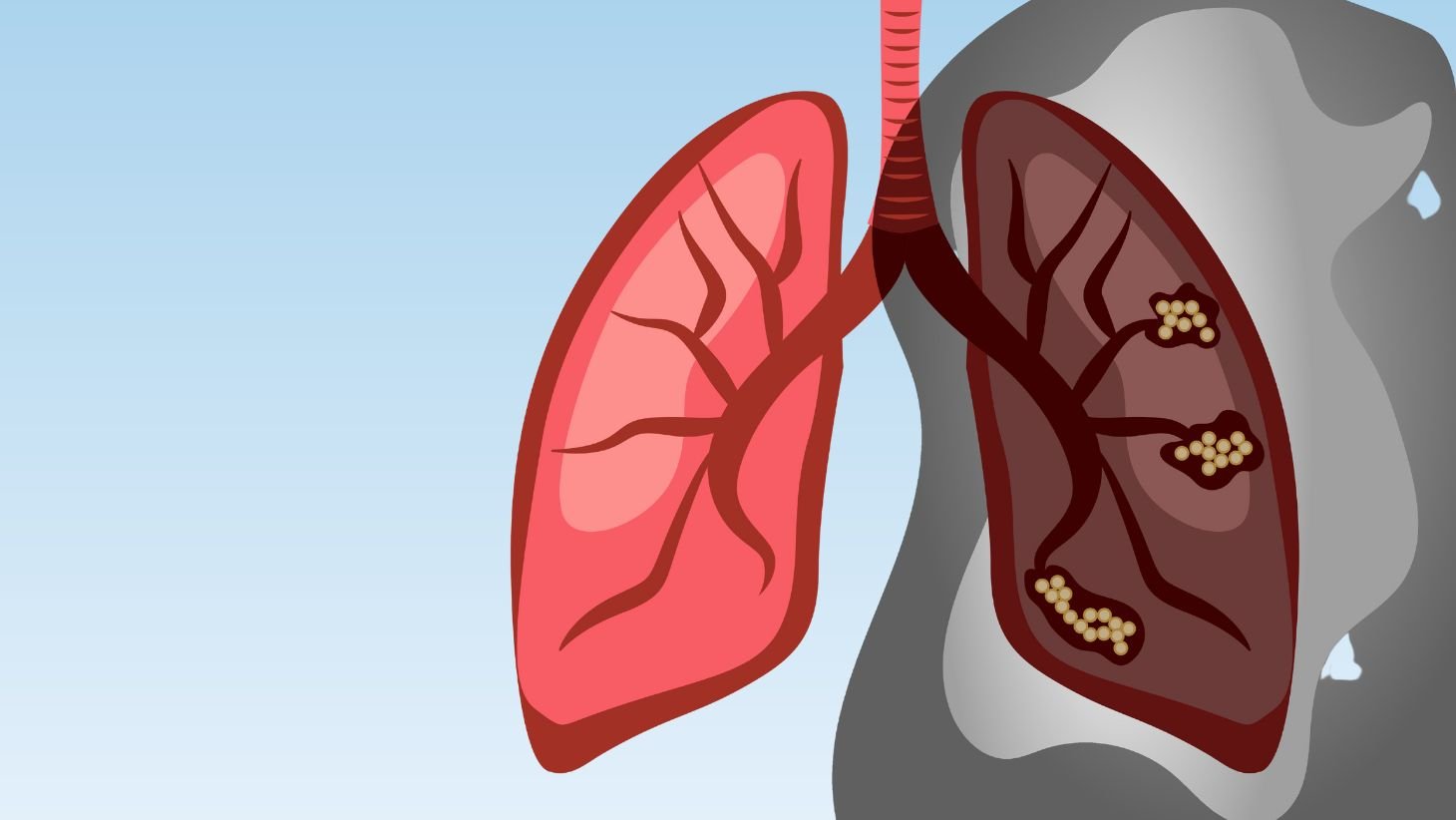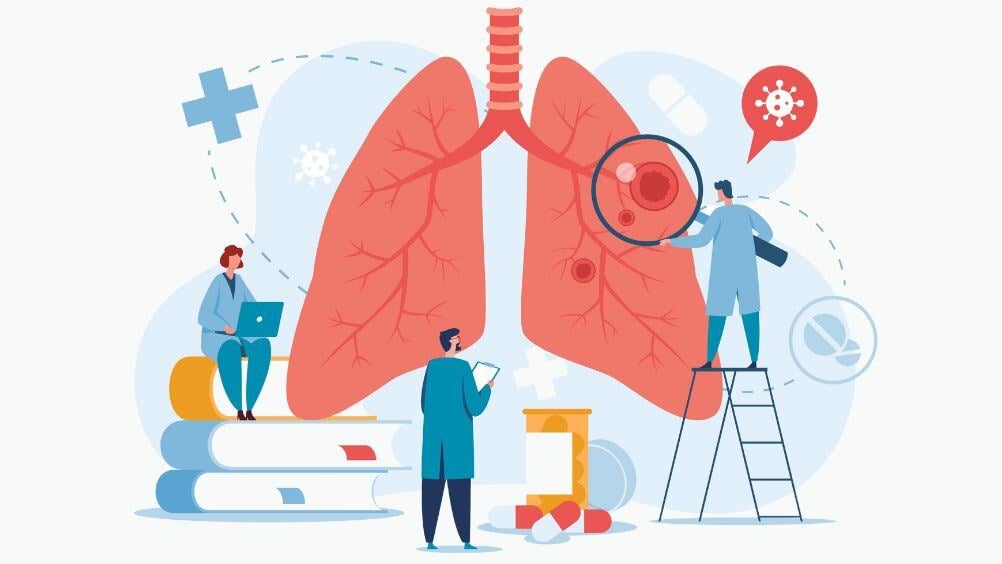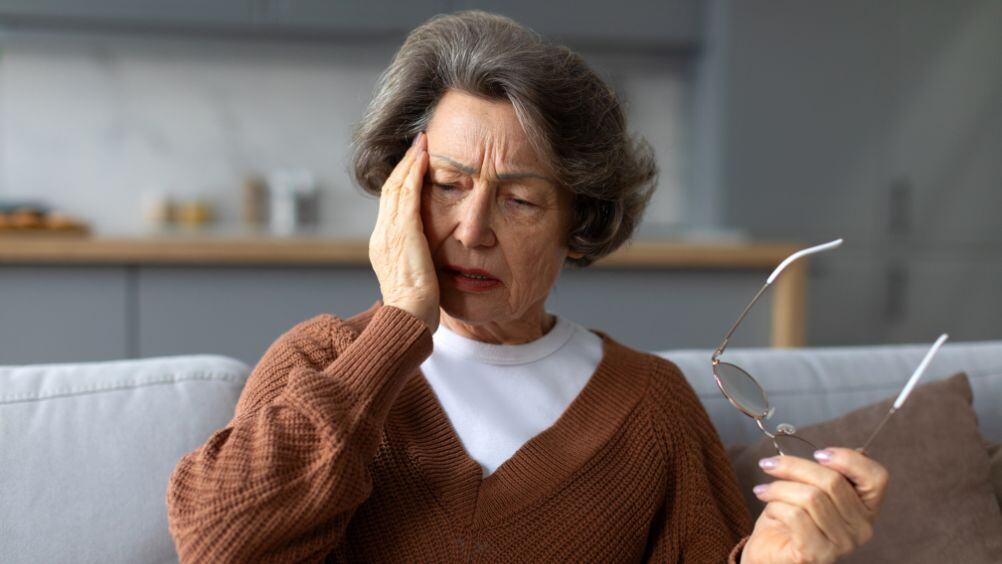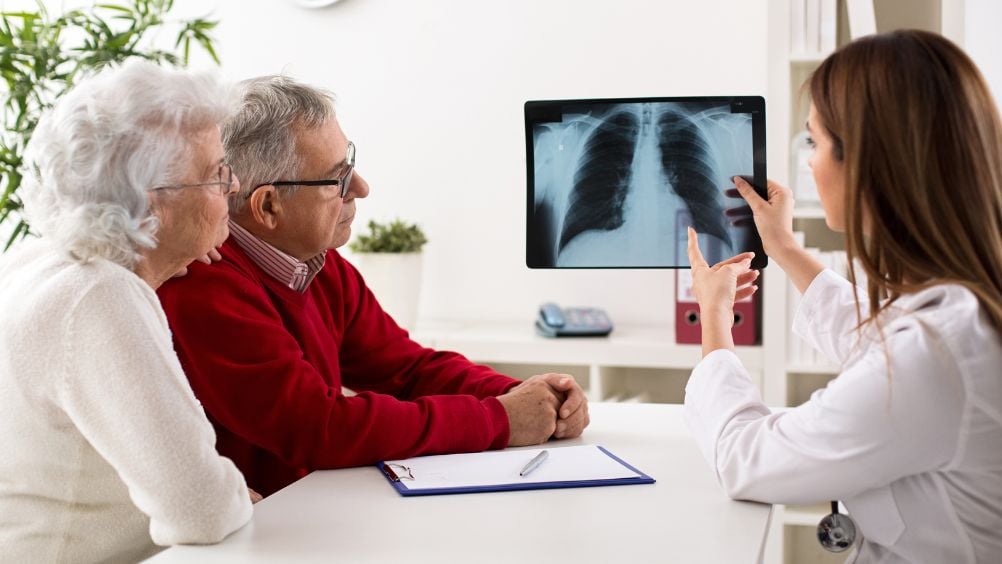It’s common knowledge that lung cancer is caused by smoking. But smoking isn’t associated with every case of lung cancer. It may be surprising that 10-20% of lung cancer cases occur in non-smokers! That’s why it’s important to know about lung cancer risk factors that can increase the likelihood of developing this disease.
Here are 5 lung cancer risk factors in non-smokers:
- Radon exposure
- Cancer-causing agents like benzene and asbestos
- Pollution in the air
- Secondhand smoke
- Lung cancer genetic mutations
1. Radon Exposure is Associated with Lung Cancer
This chemical is a naturally-occurring gas produced by the radioactive decay of the element radium. Most radon exposure happens inside homes, schools, and workplaces, but you would never know it because it has no odor. The gas comes in through the cracks of the buildings and foundation and then attaches to things like upholstery, clothing, walls and other interior surfaces which causes ongoing exposure.
Test your home for radon or install a radon mitigation system if tests show that you have high levels of radon in your home or workplace. Oregon Health Authority data shows moderate radon risk in Willamette Valley areas. Learn how to test for radon and what to do to lower your exposure.
2. Lung Cancer-causing Agents
Breathing or consuming cancer-causing agents like benzene and asbestos can cause lung cancer. When exposed to these carcinogens regularly, they can eventually build up inside your lungs causing the cells to mutate and form cancer. They can also remain in your system for some time after exposure, so make sure to do what you can to avoid contact with these harmful substances.
3. Air Pollution
Exposure to high levels of air pollution may cause lung cancer by triggering DNA damage, leading to tumor growth. The risk of developing lung cancer increases the longer you are around high levels of air pollution, so it's important to take precautions to minimize exposure.
While we live in the beautiful Willamette Valley area to avoid pollution as much as possible, you may have been exposed earlier in your life for long periods of time, which can impact you now. Think back to where you’ve lived and what type of work you did as you consider whether a symptom could potentially be related to lung cancer.
4. Secondhand Smoke Can Lead to Lung Cancer
You have a greater risk of developing lung cancer the more exposure you have to secondhand smoke. If you live with someone who smokes, consider talking with your partner or roommate about smoking less indoors or possibly quitting altogether. If you visit friends and family members who smoke, consider taking those visits outside as often as possible to minimize smoke contact.
The chemicals from cigarettes leave a residue that stays on your clothes, bedding, upholstery, and other areas in the house that go into the lungs of the non-smoker. This long-term exposure to smoke and the residual chemicals can lead to lung cancer.
5. Genetic Mutations Related to Lung Cancer
Lung cancer most often develops as a result of somatic mutations, or mutations that cannot be passed down through the family. Instead, these genetic changes are acquired during a person's lifetime and are present only in certain cells in the lung. Somatic mutations in the TP53, EGFR, and KRAS genes are common in lung cancers. While some of these genetic mutations are related to smoking, not all of them are.
Sometimes, lung cancer cases have no apparent cause. Understanding the likely causes of lung cancer can help you make informed decisions about reducing your risk, where possible.
Is Lung Cancer Screening an Option?
In the last ten years, lung cancer screening has become more readily available. It helps detect and diagnose small cell and non-small cell lung cancer at an earlier stage when it's easier to treat. Typically, lung cancer doctors only offer screening to people with a smoking history.
If you think you might be at a high risk of developing lung cancer based on the factors listed above, speak with your doctor to see if you are eligible for screening. The procedure is a low-dose chest CT scan to check for any areas of concern in the lungs.
Lowering Your Risk of Developing Lung Cancer
While there is no guarantee you won’t develop lung cancer or any other type of cancer, there are ways you can reduce some of your risk. Making healthy lifestyle choices. This includes maintaining a healthy weight and monitoring your home for radon. Additionally, it’s important to reduce your exposure to secondhand smoke and other cancer-causing chemicals.
Lung Cancer Symptoms Among People Who Never Smoked
Non-smokers may not realize that coughing and difficulty breathing could be signs of lung cancer. These two common symptoms of lung cancer in non-smokers are usually caused by a condition called pulmonary fibrosis, where scar tissue forms on and around your lungs.
If you have no other symptoms such as a fever or congestion accompanying the cough or difficulty breathing, there’s a chance it’s not caused by a virus like the flu or coronavirus. Schedule an appointment with a lung specialist called a pulmonologist who will know how to evaluate your condition to find its cause.
Most likely the doctor will perform a CT scan, chest X-ray, and lab tests if symptoms last for more than a few weeks. These tests determine if any area of the lung needs a biopsy or if there is another condition causing the symptoms.
Lung Cancer Care in Willamette Valley
If you are newly diagnosed with lung cancer, treatments are available locally in the Willamette Valley. Request an appointment with one of our lung cancer specialists. We are ready to talk to you about your lung cancer and all your personalized treatment options. Second opinions are also available to ensure you are entirely comfortable with your diagnosis and the recommended treatment plan. WVCI has a team of experts conveniently located in cities throughout Willamette Valley, including Albany, Corvallis, Eugene, Lincoln City, Newport, and Florence.
Original content published August 2022. Updated November 2023.




